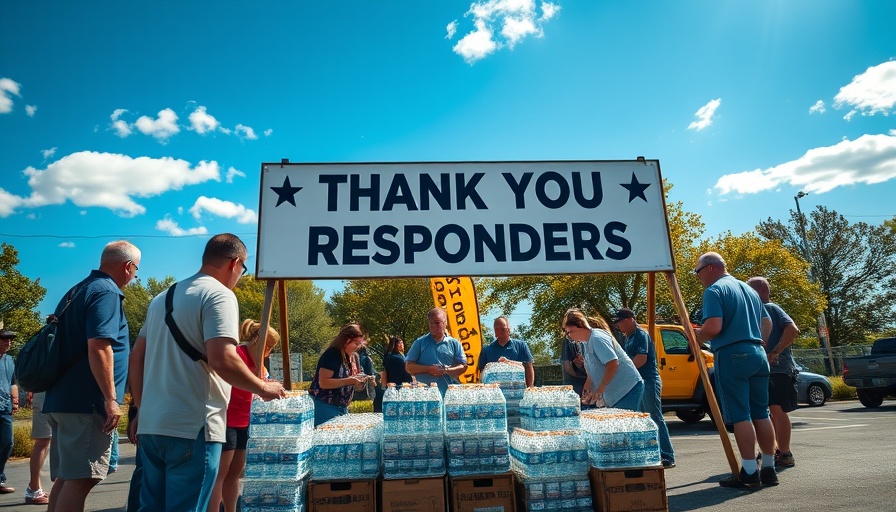
20 States Unite Against FEMA’s Budget Cuts for Disaster Preparedness
In a dramatic response to the Trump administration's recent decision to shut down the Building Resilient Infrastructures and Communities (BRIC) program, 20 states have come together to file a lawsuit in a Boston federal court. This multibillion-dollar grant program, crucial for strengthening natural disaster preparation, has been called essential by communities nationwide as they grapple with increasing environmental threats.
The Impact of FEMA’s Decision
The states argue that the decision to eliminate the BRIC program overrides congressional directives and endangers thousands of ongoing disaster mitigation projects. "Communities across the country are being forced to delay, scale back, or cancel hundreds of mitigation projects depending on this funding," the lawsuit states. These initiatives, which have already seen years of investment in planning and environmental review, are now at risk, as communities face heightened dangers from natural disasters like floods and wildfires.
Long-Term Benefits of the BRIC Program
Established in 2018, the BRIC program has reportedly helped avert over $150 billion in disaster-related costs. With almost 2,000 projects funded in just four years at a cost of about $4.5 billion, proponents emphasize that prevention is more effective—and far less costly—than dealing with disasters in their aftermath. Prioritizing disaster preparedness not only protects infrastructure but also saves lives and reduces injuries, creating a safer environment for all.
Political Context: Is It an Overhaul or a Shutdown?
The motivations behind the Trump administration’s closure of the BRIC program have sparked debate. While the administration claims the program is “wasteful” and “politicized,” critics argue it undermines critical support for vulnerable states. In the wake of catastrophic weather events, questioning the scrapping of disaster preparedness resources raises eyebrows among state officials and disaster management experts. Washington State Attorney General Nick Brown noted that “this illegal cut endangers the communities most vulnerable to natural disasters.”
Future Trends: Preparing for Natural Disasters
The lawsuit has attracted significant media attention, leading to vital discussions about disaster preparedness in the era of climate change. As extreme weather events become increasingly common, the importance of proactive measures cannot be overstated. The potential collapse of such funding streams could have devastating consequences for community resilience.
The Broader Picture: Climate Awareness and Resilience
In light of growing environmental challenges, the battle over the BRIC program serves as a microcosm of larger issues surrounding climate funding and disaster preparedness. The elimination of such programs not only impacts individual states but also sends a troubling message about the prioritization of climate resilience on a national level. Boutique hospitality professionals, who often focus on eco-conscious practices, need to be aware of these trends; if environmental sustainability is compromised at the federal level, it could hinder their efforts to foster responsible tourism practices and sustainable business models.
Take Action: The Call for Sustainable Practices
As communities face the fallout of federal decisions, it's crucial for all stakeholders—from private businesses to government leaders—to champion sustainability and resilience. The case against the Trump administration serves as a wake-up call for proactive engagement in disaster mitigation initiatives. Boutique hospitality professionals should advocate for sustainable practices within their operations while also championing the importance of disaster preparedness funding on a larger scale.
Conclusion: Rethinking Disaster Preparedness
The ongoing lawsuit filed by the 20 states is more than a legal battle; it represents a collective push towards a future where disaster preparedness funding remains a priority. As natural disasters become increasingly frequent and severe, our commitment to resilience must not falter. By supporting and investing in these initiatives, we safeguard our communities, our environment, and overall public health.
 Add Row
Add Row  Add
Add 




Write A Comment